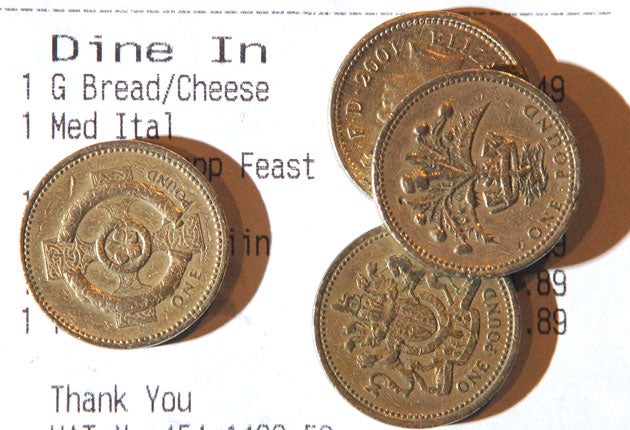Cash is no longer king, says study
Figures reveal debit card transactions are the most popular form of spending

Your support helps us to tell the story
From reproductive rights to climate change to Big Tech, The Independent is on the ground when the story is developing. Whether it's investigating the financials of Elon Musk's pro-Trump PAC or producing our latest documentary, 'The A Word', which shines a light on the American women fighting for reproductive rights, we know how important it is to parse out the facts from the messaging.
At such a critical moment in US history, we need reporters on the ground. Your donation allows us to keep sending journalists to speak to both sides of the story.
The Independent is trusted by Americans across the entire political spectrum. And unlike many other quality news outlets, we choose not to lock Americans out of our reporting and analysis with paywalls. We believe quality journalism should be available to everyone, paid for by those who can afford it.
Your support makes all the difference.Coins and notes will be used in less than half of all transactions within five years, after payments made by cash slumped from 73 per cent to 59 per cent over the past decade.
Debit card transactions are now the most popular form of spending, quadrupling to £264bn last year, a study of payment trends between 1999 and 2009 found.
The Payments Council research found that debit card payments are even dwarfing credit card usage, while the cheque continued its decline at a faster pace than expected. The council said it predicted in 1999 that just over one billion cheques would be used by individuals in 2009, but the figure in fact fell to 577 million.
Cheques are likely to be phased out completely by October 2018, but the council said that even if no action was taken, the volumes would more than halve to just 248 million in that time. "By 2050, when today's new workers have retired, cheques look set to be a historical curiosity," it said.
The future instead looks likely to be contactless cards, such as Oyster cards used on London Transport. They will allow people to pay for goods worth up to £15 without having to use a PIN. There are already 8 million of these in the UK, but the council estimates the number will grow to 30 million by 2012. Mobile phones are also likely to be used for small payments – one iPhone application already makes this possible. "By 2050, contactless could well be the norm, but it is unlikely to be on a plastic card and could very well be on a mobile phone," the report said.
However, cash still remains the most important method of payment for one-off and small transactions. Yesterday's study showed that around 21 billion consumer payments were in cash, although 80 per cent were for amounts under £10. Almost a third of money spent on goods and services was made by cash, but only 11 per cent of financial spending used notes and coins.
For regular commitments, such as bills, cash has plummeted from nearly a fifth of all payments by value in 1999 to less than a tenth last year, or from 19 per cent to 9 per cent. "Paying for things is more secure and more convenient now we don't have to keep replenishing the stock of paper and metal we drag around," the council said. "By 2050, using cash could well be a minority activity, much more the preserve of informal transactions."
While cash and cheques are less popular, debit cards have dominated the way Britons pay, with more than 6 billion purchases in 2009. Since the launch of debit cards in the late 1980s, their use has soared and there were just under 80 million cards in issue last year, up from a total of 46 million in 1999.
The council also noted that the last decade had seen internet banking put firmly on the map. A decade ago, online banking did not exist, but there are now 22 million UK adults operating their accounts over the web. Seven out of 10 younger users bank online, although only a third of over 65s access their accounts in this way, the report found.
The launch of "faster payments" between banks has helped the rise of internet banking, allowing small amounts of money to be moved instantly 24 hours a day. The council said individuals now make around 10 million one-off internet and phone payments each month.
Join our commenting forum
Join thought-provoking conversations, follow other Independent readers and see their replies
Comments